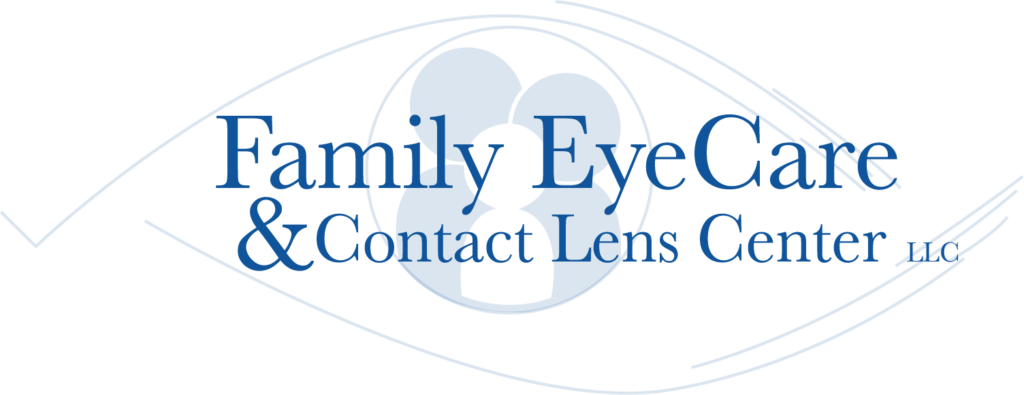Our eye doctors at Family Eyecare Center understand that, as a parent, it’s natural to worry about your children and their wellbeing. And when it comes to their eyesight, you may not even realize they have difficulty seeing clearly until there is an issue.
Poor vision can have a significant impact on your child’s academic performance, social development, and overall quality of life. Let’s take a look at the signs that could potentially point to visual issues in children of all ages and why regular eye exams are crucial for their vision and eye health.

Reasons you may be concerned with your child’s vision
Every day, children engage in tasks that require constant visual attention. Their eyes are constantly used, from reading and writing to playing video games. However, when their eyesight is not functioning at its best, it can affect their education and participation in group activities such as sports. As parents and caregivers, it’s important to understand how to recognize the signs that your child might have a vision problem and help to spot the signs your child needs glasses.
What are the signs to look out for?
It can be difficult for children to vocalize their vision problems. Our team of experienced eye doctors have identified some of the main indicators that suggest your child is struggling with their vision.
- If you notice your little one squinting while watching TV, looking at digital devices, or struggling to see something in the distance, it could be a sign that they’re struggling to focus and see clearly.
- Excessive blinking could also mean that your child is struggling to see clearly and is blinking to clear their eyes and image.

- Sitting too close to the TV or holding books or screens closely are tell-tale signs that your child is having trouble seeing far-away objects.
- Head tilting could be a sign of various eye conditions, including strabismus (eye misalignment), refractive errors, ptosis (droopy eyelids), nystagmus (uncontrolled eye movements), or different visual clarity between eyes.
- If your child loses their place while reading to you, it may indicate an issue with eye tracking.
Don’t worry, though – there are plenty of solutions for these issues and catching them early can prevent any long-term vision problems and help answer the question, “does my child need glasses?”.
How to resolve the issue
If you want to ensure your child sees the world clearly, scheduling regular eye exams is as important as ensuring they eat their veggies (but maybe not as much of a struggle!). These exams will not only evaluate the health of your child’s eyes but will also determine if they need glasses for near-sightedness, also known as myopia, or farsightedness, also known as hyperopia, or astigmatism, which is when the eyeball grows into more of a football shape than a sphere.

Even if your child isn’t showing any visual symptoms, the American Optometric Association recommends eye exams for infants as young as six months old, so keeping up with regular appointments is always a good idea. Your child’s vision is the key to their success, so why not give them the gift of clear sight?
And if your child needs glasses, with the wide range of choices available in our office, they’ll hopefully be super excited to pick out a trendy pair they’ll love to wear!
Take action for your child’s vision
As parents, we want nothing but the best for our children. We want them to grow up healthy, happy, and well-educated. So, recognizing and addressing the signs of visual problems in your child.
If you have concerns about your kid’s eyesight, why not book an eye exam at Family Eyecare Centre, Quincy, IL? Not only will this help put your mind at ease, but you’ll also be taking an active role in your child’s health and development – protecting their eyes now and helping keep them in great shape for years to come.
